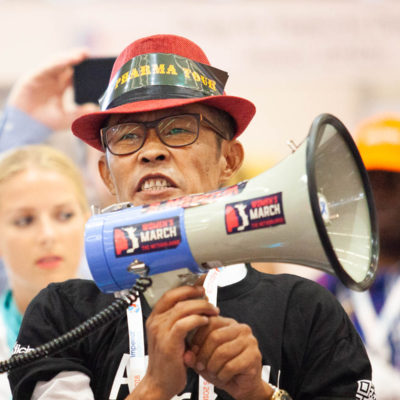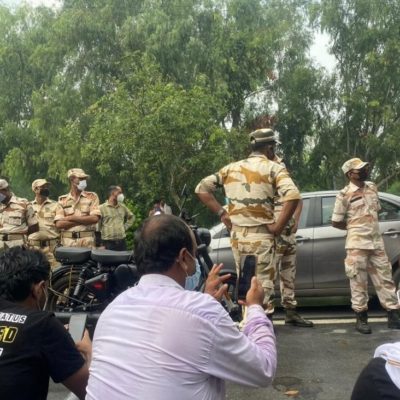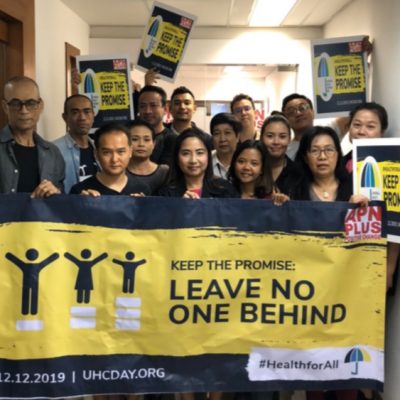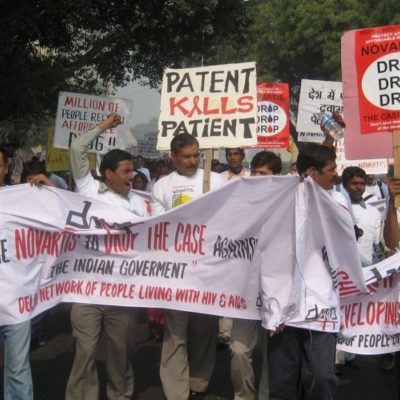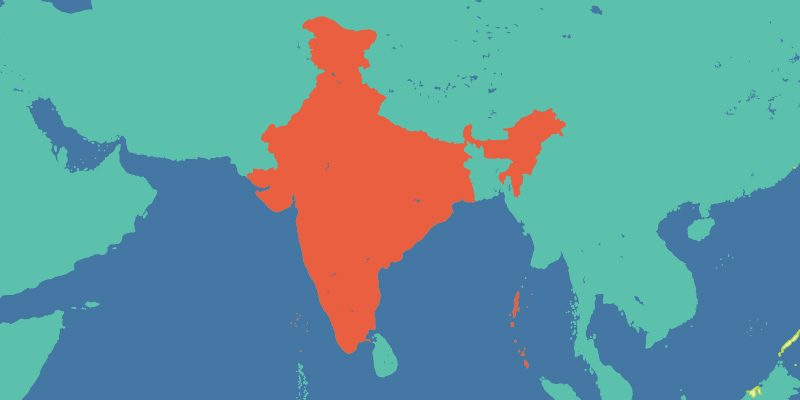
Challenging the status quo in India, to prevent unmerited monopolies, protect India’s pro public-health patent law AND ensure it is practiced, and maintain India’s status as the ‘pharmacy of the developing world’.
As the largest supplier of generic drugs to other countries, India is known as ‘the pharmacy of the developing world’. The country also has the best patent law in terms of public health safeguards. However, many big players in the pharma industry would like to undermine this reputation, and recent studies show that the anti-evergreening procedures are not being applied correctly.
Even in a country with a good track record for using its legitimate rights or ‘flexibilities’ under the TRIPS Agreement, there is a significant treatment gap for the millions of people living with HIV, Hepatitis C and/or TB. Cheaper, i.e. fairly priced, medicines and integrated services are not available universally across its states.
2.1 million people are living with HIV, but just 56% of people are receiving treatment.
Under the HIV AIDS Act 2017, all people living with HIV have a legal right to treatment. However in recent years the AIDS programme budget has declined and our partner, the Delhi Network of Positive People (DNP+), has to regularly alert the government to stock-outs of HIV testing kits and essential medicines, including HIV treatment for children.
An estimated 12-18 million people are living with Hepatitis C.
In 2015, an estimated 59,000 patients died. Two patents applications have been granted on sofosbuvir, a key drug in Hep C treatment. DNP+ opposed the two patents filed by Gilead as the application “clearly does not involve any inventive step”. DNP+ was successful in having the patent rejected in the first round of the examination. The network believes that the subsequent granting of the patent is unmerited and continues to challenge this monopoly. APN+, together with Lawyers Collective in India, has filed post grant patent opposition on sofosbuvir. Hearings are continuing in the Delhi High Court.
2.79 million people are estimated to be living with TB.
The government is committed to eliminating TB by 2025. India has the highest burden of multi-drug resistant (MDR) TB in the world. While newer drugs to treat MDR-TB are now being recommended by the WHO, over-patenting and over-pricing of these MDR-TB drugs in India is hindering access. There is limited availability in many areas in the country and government rollout remains slow. Evergreening patents on the new MDR-TB drugs have been opposed by people living with HIV and people with TB; DNP+ believes that there is also a clear argument for the use of a compulsory license for the primary patents on these new drugs.
Our focus
DNP+’s core work is service delivery, treatment literacy, community empowerment and advocating for access to medicines. The network campaigns against stock-outs of HIV treatment, against free trade agreements that threaten generic access, and files patent oppositions on HIV, Hep C and TB medicines.
Advocacy is not an easy job. No-one likes us because we challenge the status quo.
But we are not here to do what you like! – Loon Gangte, DNP+ Treasurer
DNP+’s priorities include:
- Continuing to fight Gilead’s unmerited patents on key Hep C drug, sofosbuvir.
The goal of DNP+’s ‘Dawn Project’ is access to free Hep C treatment in India.
- File other patent oppositions, as and when required. DNP+ has successfully opposed a number of unmerited patents, resulting in applications being withdrawn or refused.
- Opposing TRIPS Plus measures in all major free-trade agreements (FTAs), including EFTA and RCEP negotiations. These measures, if agreed, would undermine India’s role in supplying generic medicines to other countries that rely on this more affordable arrangement.
- Demanding a proper, universal, rollout of HIV, Hep C and TB drugs in India. This includes removing the patent/price barriers.
Last updated May 2019.


